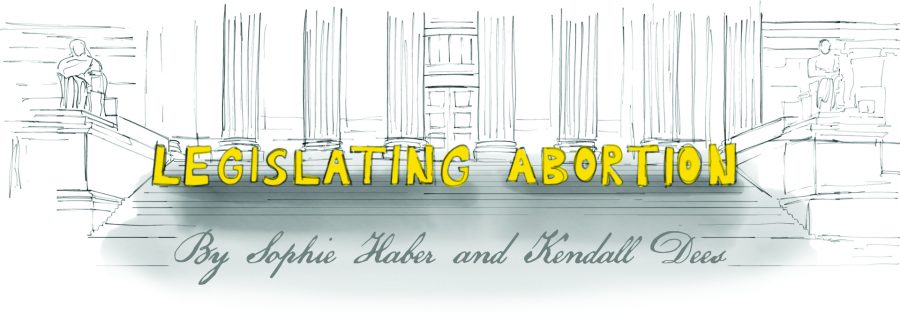We have both grown up in families that are filled with strong women who have actively promoted women’s rights and gender equality. Through their example and through our own experiences in the world, we have developed a strong sense of responsibility and urgency towards perpetuating the women’s movement.
Decades ago, women fought for the right to choose what to do with their own bodies, and they thought they won. But this past month, laws proposed and passed in Alabama, Georgia and Ohio challenged a woman’s right to abortion (read more on page A1). For the first time in our lives, we are being forced to confront the fact that our right to choose is at risk. Even worse, this right is primarily being threatened by a demographic of people that could never understand what it feels like to live as a woman, susceptible to risk and discrimination that they will never experience.
Throughout high school, as we have become more informed of our communities, our eyes have been opened to the ubiquity of misogynistic and sexist rhetoric that frequently and consistently appears in the political arena. In just the last few weeks, we have scrolled through our social media feeds to find a quote spoken by Republican state legislator Lawrence Lockman excusing rape as a man’s right to utilize his strength to force himself on a woman, statistics comparing abortion to gun violence and pictures of pro-life state legislatures dominated by men. Obviously, there is a larger conversation occurring in our world today that extends beyond reproductive rights and calls into question the value of women’s rights entirely.
Even at our age, entering into our first year of adulthood, we have had experiences where we have felt the impact of widespread societal sexism. Although we consider ourselves extremely lucky to live in a city and in a country that is far ahead in terms of gender equality, we still find ourselves targeted or marginalized because we are women. Again and again, our strength, whether that be emotional, intellectual or physical, is undermined, and we find ourselves confined to a different set of expectations.
It is heartbreaking for us to realize that as we continue to struggle for progress, one of our fundamental rights is being challenged. Next to the right to vote, we consider a woman’s right to choose to be one of the most important developments towards achieving gender equality in the 20th century.
We understand that these laws will likely not go into effect, at least in the way that they are written now, but the fact that the current climate even allows for this conversation to legitimately occur is deeply upsetting and disappointing. As we enter the world and intend to pursue jobs in fields that are primarily dominated by men, we fear a society where regression is favored over progress.
We want to acknowledge that we have been greatly encouraged by the recent surge in the women’s movement, exemplified by the #MeToo movement and the record number of women elected to Congress this year. However, these developments occur alongside the passing of legislation that is increasingly hostile towards women.
It is scary to think that the laws aren’t in our hands and that we could be entering environments where we potentially have no agency to make a difference, even if we speak up.
It is unfair and undemocratic to have legislation that targets a specific community be decided primarily by a group of representatives that are personally unaffected by the issue. We know that the passage of these laws has been a wake-up call for us, and we urge other young women to become involved and use their voices.
We are afraid of what can happen if we don’t speak up.
































